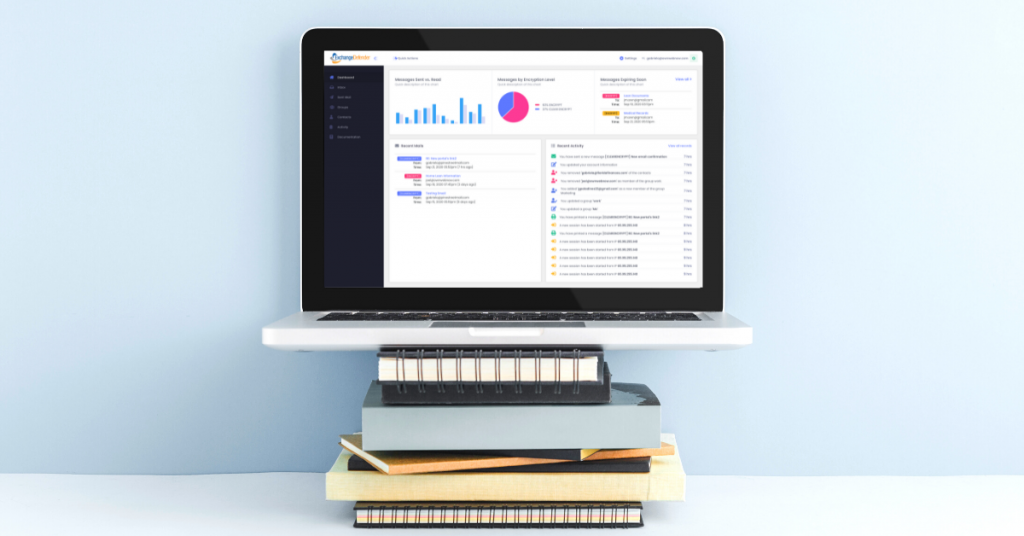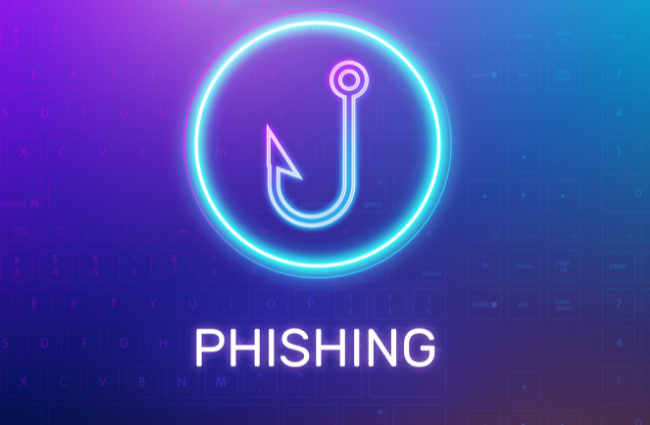Education sector big target for hackers, lacks data security

Data encryption used to be optional, but not anymore. In the past, when we referred to encryption, we thought of hi-tech industries with high profile secrets. Encryption is the digital process of taking regular text, like your email or sms messages, and creating an unreadable “code” to protect the plain text. This proven method ensures the confidentiality of the original text. Now, your local small business, and local educational institutions require added security to protect their data from being hacked.
Education industry is a prime target for hackers
Surprised? We’re not. The education industry consists of services from pre-kindergarten all the way to post-secondary institutions. It comprises of organizations that provide lessons and training on a wide array of subjects. These institutions, (both private and public) include K-12 schools, colleges and universities, and job training centers. Can you imagine the large volumes of sensitive data that the education industry holds? Every one you know, including yourself has received some form of education, and therefore have submitted personal information that can be stolen by hackers. The most common forms of information students and staff must submit include: DOB, social security number, home addresses, medical records, and more!
Current struggles that schools face
The biggest challenge that institutions face today is the ability to protect students and staff information. The sheer volume of data that a single school incurs in a single academic year is astronomical. Right now, the industry is lacking the security tools needed to store, and manage sensitive information.
The education sector is finding it hard to comply with the biggest data security mandates, FERPA, and HITECH. FERPA or (Family Educational Rights and Privacy Act) is a federal law that gives parents the right to access their children’s education records. HITECH is The Health Information Technology for Economic and Clinical Health Act, which has to do with the use of electronic health records. This mandate protects educational institutions from penalties from lost or stolen data if they can prove that their data was encrypted prior to a breach.
From an internal perspective, one could assume that the adoption of an institution-wide policy mandating the use of encryption would be difficult, and time-consuming. In the past this may be true, but modern encryption is now cloud-based, and is easy-to-use making a full adoption fast and painless.
The next big challenge is cost. Most schools have a budget for the year that determines what services they can afford. Before, having encryption involved physical disks and hardware making it extremely costly. However, the strongest encryption software products today are available online with no pricey overhead, or storage restrictions.
Big benefits from encryption awaiting Education sector
Every school, and training center should be rushing to use encryption. There are many benefits that could solve Education’s biggest data security challenges. Firstly, encryption enables secure, and compliant communications between educators, students, and parents. It would offer a secure method to share sensitive information, and would provide seamless collaboration.
Second, an encryption software would ensure data privacy. It enables schools to fully comply with current security mandates. Educators can create custom encryption policies that ensure that student data privacy is met by triggering encryption mechanisms automatically.
Using encryption would enable schools to have full visibility of all information being shared, read, forwarded etc. Educators can get instant confirmation alerts when students or parents access encrypted messages. The detailed reporting would satisfy both the FERPA and HITECH directives for educational institutions.
5 reasons to secure your law firm right now

Hackers are making big money on the legal industry lately, and it seems to only be getting worse. Law firms are vulnerable to cyber attacks due to the nature of their profession. They handle very sensitive information about their clients like: financial records, company secrets, and health information. Cyber-criminals are taking advantage of the fact that the legal sector is slow-moving when it comes to securing their data. If you’re a lawyer, or work for a law firm, here are five major reasons why you should take measures to secure your company right now:
Reason #1: There is a dramatic increase of data breaches
Law firms pose a higher risk for data leaks due to their business nature of storing and sharing sensitive information. Data leaks are the most common result of cyber-attacks. Due to the lack of security used by many law firms, it is easy for hackers to perform data breaches via malware, phishing, and even denial of service.
Reason #2: Phishing scams are most popular
3.4 billion fake emails are sent each day. In 2020, 74% of organizations in the United States experienced a successful phishing attack. It is becoming increasingly difficult to decipher whether an email is a phishing campaign or not due to the growing sophistication in the attacks.
Reason #3: Hacked email accounts is a major problem
There is a hacker attack happening every 39 seconds, and email is the main use of communication for most professional services. Criminals can take over most of your accounts associated with your email once they have gained access.
Reason #4: Lack of security as a priority
Less than half of all law firms in the U.S use some form of encryption software with custom policies to protect their client’s privacy. This means that a lot of your client’s confidential information is just sitting on a laptop or computer unsecured.
Reason #5: Ethical & regulatory obligations are weighing in
To comply with the ABA’s rule 1.6: Confidentiality of Information, lawyers must make a reasonable effort to secure client information. To operate in an ethical manner according to the American Bar Association, lawyers should have security policies in place to ensure the protection of client data.
Bottom line: Cybercriminals love law firms as targets for their cyber attacks. It is crucial for the modern law firm to protect themselves against email-borne threats, and data leaks. ExchangeDefender specializes in law firm data security, compliance, and continuity solutions. The legal industry relies on ExchangeDefender to mitigate risks of cyber and email attacks. We secure your law practice, and protect your clients by eliminating the danger of data breach or ransomware.
Introducing 365 Defender Referral Program
ExchangeDefender recently launched affordable cybersecurity service plans for small businesses, learn more. The pandemic showed us a lot of security and technical vulnerabilities that our third-party clients were experiencing. This is why we created service plans that would benefit businesses directly. We love our partners, and our partner program and have no plans to change it. 365 Defender is our solution to those businesses that can’t afford an MSP, or are only looking for specific services.
At ExchangeDefender, it makes us really happy after hearing that a client has referred us on to someone else. In fact, it makes us so happy that we decided to reward those who are helping spread the word about our services.
How the Referral Program works
We made sure to make things as easy as possible. First, you identify a possible referral. Second, the referral goes online to signup for 365 Defender services. Third, you get paid commission for the sales amount. It is that simple!
How to get started
First, you’ll want to join our referral program. To submit a referral, simply enter a support ticket (as an inquiry is fine too) with the prospective sales information. We will contact the lead you provided us, and when a subscription is confirmed, we will provide you a one-time commission fee equal to the sales amount.
Ideas on where to gossip about us
- Your website / blog
- Reddit profile
- In your email signature
Some ideas on what to say
- Looking for a powerful anti-spam software that is budget-friendly? You’ll want to check out 365 Defender.
Message us to get a free trial code!
- Don’t have a budget for an MSP but need security services? Try 365 Defender. Message me to get a
7-day free trial code!
What is Phishing? (a simple explanation)

According to recent reports from the FBI, Phishing has become the most common form of cyber attack in 2020 and 2021. Phishing is a method that hackers use to steal your sensitive information like usernames or passwords. It is most often used for identity theft, where cybercriminals send a phishing campaign (via email) to gain access to your bank accounts, personal information, and more.
The goal of a Phishing attack is to: gain credentials like bank pin numbers, usernames and passwords, gain personal data like your name, home address, and email, and also medical PHI information like treatment information and insurance claims.
Where does Phishing happen?
Approximately 96% of phishing attacks are delivered by email. In 2020, it was estimated that 1 in every 4,200 emails was a phishing email according to a Symantec report. To put the numbers in perspective, for ever 1 second of internet activity, 3.4 million emails are sent.
There are also fake websites, social media accounts, and phone calls that are used by criminals to try to steal lucrative information. Beware of these websites, always check for the lock sign in your URL, and make sure that the spelling is correct.
What does Phishing look like?
Inside of a Phishing email you’ll find a malicious link, that (when clicked) will transfer you to a fake website that will request your credentials in the form of “logging in”. Most phishing emails, when you look at the subject lines, you’ll find that the following keywords are present, like:
- Urgent
- Request
- Important
- Payment
- Attention
The email would appear to be from a brand that you trust, like Amazon, Microsoft, or Facebook. The email “from” address is not actually from the brand, but rather faked to appear like it is.
What happens when a Phishing attack has been successful?
2020 Phishing statistics show that about 90% of users cannot identify a sophisticated phishing email. It’s not because we’re dumb, its because the attacks are executed so well. It is becoming increasingly difficult for companies to secure their data because office workers are human, and humans make mistakes. After a successful phishing attack, about 60% of organizations lose their data, 50% are infected with ransomware and get their credentials or accounts stolen.
Need Phishing protection for your business? Keep your company and data safe with ExchangeDefender PRO!
Interested in learning more about Phishing protection, click here.
Orlando’s #1 Cybersecurity provider launches small business plans

Orlando, Florida – Smaller businesses can now secure their employees, email, and data for less than $5 a day. Orlando’s top cybersecurity provider, ExchangeDefender has just launched affordable cybersecurity services for small business via its sister company – 365 Defender. Dubbed the “original email experts”, 365 Defender protects businesses against data leaks and email threats like SPAM, phishing, spoofing, malware, and much more!
9 out of every 10 cyber-attacks start with just a simple email. Over half of all U.S businesses lack proper security, making them an easy target for cyber-attacks. 365 Defender is designed to offer SMBs the ability to protect themselves without having a hefty IT budget.
“We are a small business ourselves. We know that most SMBs don’t have a big budget for IT, or cybersecurity. This is why we leveraged ExchangeDefender technologies and expertise to create reasonable options via 365 Defender.”
– ExchangeDefender CEO, Vlad Mazek
Service offerings range from Email Security for Outlook and Gmail, to Encryption software that can send secure messages to emails, urls, and text messages. The monthly fees are small business friendly with the cheapest service being just $3 per user, per month. There is no yearly contract commitment, giving businesses complete flexibility to satisfy their ever-changing IT needs.
To learn more about 365 Defender, and to subscribe to a service plan, please visit our website www.365defender.com. Get a free 14-day trial for your business today!
365 Defender is owned and powered by cybersecurity leader, ExchangeDefender. ExchangeDefender specializes in providing email and data security to enterprise since 1997. Headquartered in Orlando, Florida – the IT firm has just launched service plans for small business in hopes of keeping companies safe regardless of their size and budget.


